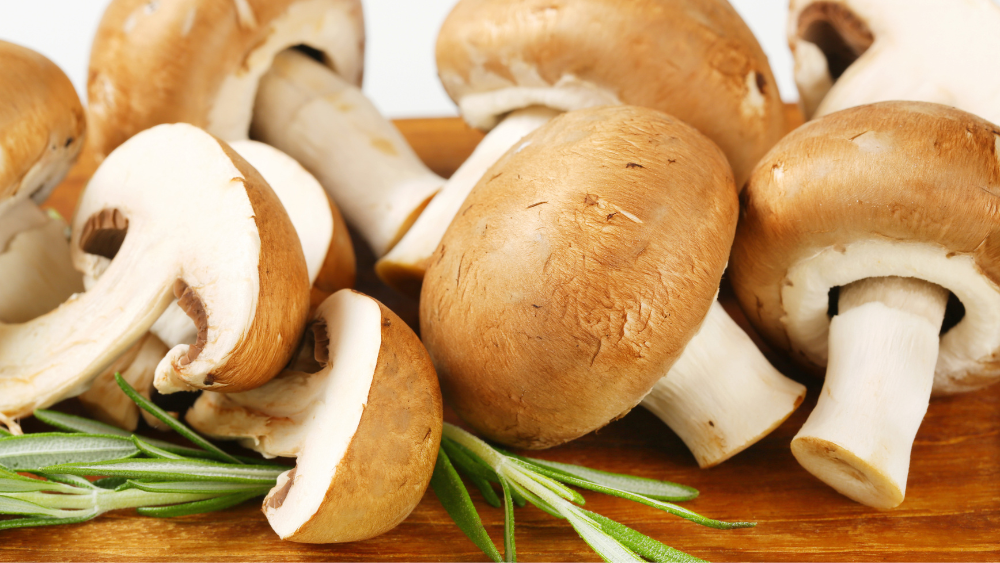November 29, 2024 | by Silvana Jakupovic, ND
In holistic health, there is a vital link between the gut and the brain, often called the gut-brain axis. This intricate communication pathway regulates mood, cognition, and overall well-being. Recently, functional mushrooms have been gaining much attention for their potential impact on this phenomenon. Varieties like lion’s mane, reishi, and chaga are believed to support gut health while also enhancing brain function, making them valuable allies in promoting mental clarity and emotional balance. Their unique properties offer a holistic approach to addressing the interconnectedness of gut and brain health.
What is the Gut-Brain Axis?
The gut-brain axis is a communication link between the brain and the gastrointestinal system. The brain is part of the central nervous system, while the gut has its own complex system known as the enteric nervous system, which controls digestion and gut function. This connection operates in two directions, utilizing a network of signals that include nerve impulses, hormones, and immune responses. Essentially, the gut and brain constantly communicate, influencing each other in ways researchers are now beginning to understand fully.
For example, factors such as stress, dietary choices, and the overall health of the gut microbiome can significantly impact digestion, mood, and cognitive function. Stress can lead to gastrointestinal issues, while gut health can affect neurotransmitter production, influencing feelings of happiness or anxiety. This intricate interplay highlights the importance of maintaining gut health for digestive wellness and overall emotional and mental well-being. Understanding the gut-brain axis underscores the significance of holistic health approaches that promote a healthy gut as essential for overall vitality.

The Role of the Gut Microbiome in Brain Health
The gut microbiota is a key player in the gut-brain axis, representing a complex community of tiny organisms, primarily bacteria, that inhabit our digestive tract. These microbes are crucial for our overall health, influencing digestion and many physiological processes. They help break down food, produce essential nutrients, and support the immune system.
Recent research reveals a strong connection between the diversity and composition of gut microbiota and cognitive functions such as memory, learning, and mood regulation [1]. When the gut microbiota is out of balance, a condition known as dysbiosis can occur. This imbalance has been linked to an increased risk of mood disorders, including anxiety and depression, as the altered microbial environment can affect neurotransmitter production and inflammation levels.
Moreover, studies indicate that gut microbiota may play a role in the development and progression of neurodegenerative diseases, including Alzheimer's disease [2]. Certain bacterial strains are associated with protective effects on brain health, while others may contribute to neuroinflammation and cognitive decline. These findings underscore the critical relationship between gut health and brain health, highlighting the potential for dietary and lifestyle interventions that promote a balanced gut microbiome as a means to support mental and cognitive wellness.

How the Brain Communicates with the Gut
The connection between the gut and the brain is dynamic and works in both directions. This means that not only can the gut influence brain function, but the brain can also significantly impact gut health and operation. The brain communicates with the gut primarily through the nervous system, with the vagus nerve serving as a key pathway for this intricate communication.
When we experience stress, this connection becomes particularly pronounced, as stress can directly affect our gut health, often leading to discomfort or digestive issues. For example, stress triggers the brain to release hormones like cortisol, which can alter gut motility and digestion. This can result in symptoms such as bloating or diarrhea. Also, heightened cortisol levels may contribute to increased intestinal permeability, often called “leaky gut,” which allows unwanted substances to enter the bloodstream. This complex interplay emphasizes the importance of managing stress for mental health and maintaining a healthy digestive system.

What are Functional Mushrooms?
Functional mushrooms are unique fungi recognized for their wide range of healing benefits and medicinal properties. Used for centuries in traditional medicine, particularly in Asian cultures, these mushrooms are revered for their ability to address numerous health and wellness needs, from boosting immunity to enhancing mental clarity.
Unlike the common button mushrooms typically found in grocery stores, functional mushrooms are not usually incorporated into everyday meals. Instead, they are often consumed in more potent forms, such as extracts, capsules, powders, or teas. This approach allows individuals to benefit from the high concentrations of bioactive compounds that these mushrooms contain, which can enhance their therapeutic effects. By utilizing these concentrated forms, people can more easily integrate the healing properties of functional mushrooms into their wellness routines, promoting overall health and vitality.

The Science Behind Mushrooms and Gut Health
New research suggests that functional mushrooms offer significant benefits for gut health, highlighting their potential role in supporting the gut microbiome. These fungi appear to influence the composition and function of gut bacteria, which can profoundly impact digestive health and the intricate connection between the gut and brain. As scientists delve deeper into the properties of functional mushrooms, they are particularly intrigued by their prebiotic effects.
Prebiotics nourish beneficial gut bacteria, helping them flourish and remain active. By promoting the growth of these good bacteria, functional mushrooms contribute to a healthier and more diverse gut microbiota, which is essential for optimal digestion, nutrient absorption, and immune function. This balanced microbiome is crucial for overall health, as it not only aids digestion but also supports mental well-being through the gut-brain axis.
Mushrooms’ Impact on Digestive Health
Functional mushrooms also offer significant benefits for digestion due to their high content of dietary fiber. While humans cannot digest this fiber, it is crucial in maintaining a healthy digestive system. By adding bulk to stool, dietary fiber promotes regular bowel movements, which is essential for preventing constipation and ensuring the efficient elimination of waste.
Moreover, certain types of fiber found in functional mushrooms, such as beta-glucans, are particularly helpful for individuals suffering from irritable bowel syndrome (IBS) [3]. IBS is a common gastrointestinal issue characterized by bloating, gas, and abdominal discomfort. Research suggests that beta-glucans may alleviate some of these uncomfortable symptoms, making functional mushrooms a supportive dietary option for those affected by IBS.
Functional mushrooms provide a natural way to maintain digestive health by aiding in regularity, supporting beneficial gut bacteria, and potentially reducing digestive problems. Their unique blend of nutrients and bioactive compounds enhances gut function and contributes to overall wellness.

Exploring the Mushroom-Gut-Brain Connection
As mentioned, functional mushrooms, have shown promise in supporting the gut-brain axis—a critical pathway linking digestive health to mental well-being. These mushrooms are rich in compounds like beta-glucans, prebiotics, and antioxidants that help foster a balanced gut microbiome, which in turn plays a significant role in neurotransmitter production and mood regulation.
For instance, Lion’s Mane contains bioactive compounds that may aid in brain cell regeneration and improve cognitive function, while Reishi has adaptogenic properties that help the body respond to stress, reducing inflammation in the gut and brain. By supporting a healthy gut environment, functional mushrooms help strengthen the gut-brain connection, promoting mental clarity, mood stability, and a greater sense of emotional balance.
Frequently Asked Questions
Which functional mushroom is best for brain health?
Lion's Mane mushroom, or Hericium erinaceus, may benefit brain health and cognitive function. Its unique abilities come from compounds called hericenones and erinacines. These components are linked to better memory, improved focus, and enhanced cognitive performance.
How long does it take to see the benefits of incorporating functional mushrooms?
The time it takes to see the benefits of functional mushrooms can be different for each person. Factors like body weight, overall health, and the type of mushroom play a role. You may need to take these mushrooms regularly for a few weeks or even a few months before you notice changes. These changes can happen in areas such as your immune system, energy levels, or overall quality of life.
Are there any risks associated with consuming functional mushrooms?
While functional mushrooms are usually safe, there are some risks to note. Some people may have mild side effects, such as tummy aches. Others might have allergic responses. It's important to know these risks and, if you have concerns, it's best to talk to a healthcare professional.
How can I start adding functional mushrooms to my diet?
Adding functional mushrooms to your diet is easy! You can get them in different forms like dry powder, capsules, or extracts. You can mix them into smoothies, soups, or stir-fries with simple recipes. Start with a small amount and slowly increase it as you feel comfortable.









Leave a comment
This site is protected by hCaptcha and the hCaptcha Privacy Policy and Terms of Service apply.